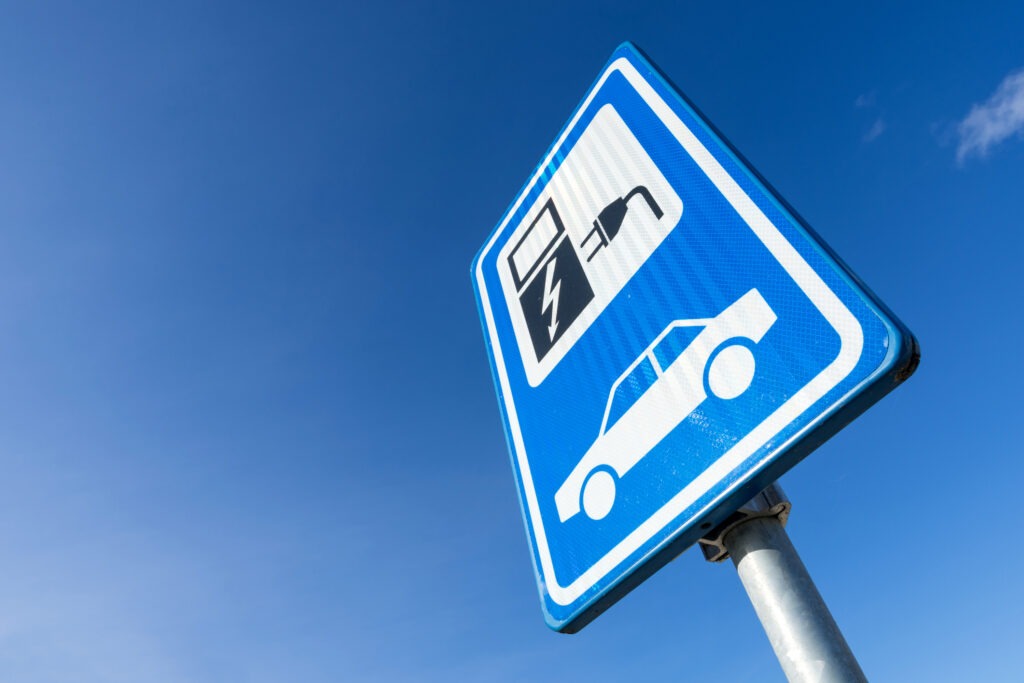Tesla thrives in a struggling Dutch EV market
24 July 2024

Despite a slump in the Dutch electric vehicle (EV) market in June, Tesla enjoyed a strong performance. José Pontes, data director at EV Volumes, investigates the results with Autovista24 journalist Tom Hooker.
The Dutch EV market recorded 16,089 registrations in June, resulting in a steep year-on-year decline of 15%. This result matched the overall new-car market, which fell 12% in the month.
EVs accounted for 45% of new-car deliveries in the month, with 11,816 battery-electric vehicles (BEVs) representing 33% of the market alone. Plug-in hybrids (PHEVs) made up the remaining 4,273 EV deliveries.
In the first half of 2024, plug-ins claimed 45% of the Dutch new-car market, improving on the 42% recorded at the same point in 2023. All-electric vehicles accounted for 31% of deliveries from January to June this year, down from 33% a year ago.
With the arrival of more plug-in models, EVs could account for half of the entire Dutch new-car market this year. This would likely leave BEVs with a 36% share. The all-electric technology represented 73% of the plug-in market in June, above its year-to-date hold of 70%.
Tesla in the top two
The top two best-selling EVs in the Netherlands came from Tesla in June. The Model Y came first, thanks to 1,768 registrations. In second was the Model 3 which had its best result in some time, reaching 1,664 deliveries.
This was likely caused by a registrations rush to get the Chinese-made sedan before the implementation of provisional EU tariffs.
Another model imported from China is the Volvo EX30, which posted 1,172 registrations to finish June in third. This meant BEVs filled the top three positions in the EV table as well as the overall market during the month.
Fourth in the plug-in and overall chart was the Kia Niro, recording 596 EV deliveries. This equated to 52% of the compact crossover’s volume, with the remaining registrations coming from the hybrid version.
Despite usually representing most of the model’s deliveries, the BEV share of the Niro’s deliveries dropped to 40% in June. On the other hand, hybrid volumes rose to 48%. This is likely due to the upcoming Kia EV3 BEV, which is believed to offer a cheaper list price than the all-electric version of the Kia Niro.
Positive performances
The Volvo EX40, a model that was previously known as the XC40, rounded out the top five in the EV and overall table. Its 575 plug-in deliveries accounted for 82% of its total volume. The C-segment SUV could soon cannibalise the volumes of its sibling, the EX30.
The Ford Kuga PHEV was the highest-placed model offered with only a plug-in hybrid powertrain in June, reaching 379 registrations. This was its best result in 10 months. In seventh came the BMW iX1, which posted 355 units, its best performance of 2024.
Completing the top 10 was the Polestar 2 with its best monthly total in over a year, recording 264 deliveries. Below, the Renault Scenic E-Tech jumped to 11th in only its second month on the Dutch market, with 254 registrations.
The model has changed from an MPV to a crossover in its new generation. As a competitive offering in the category, it can be expected to enter the top 10 soon. Maintaining its success in the coming months will be beneficial to the brand, with the Renault 5 not set to land until late this year.
Meanwhile, the Mini Cooper EV enjoyed its best result in a year, coming 16th with 206 deliveries. The model's performance may be affected in the next few months by the EU’s provisional duties on BEVs made in China.
The biggest surprise in June came from the Skoda Kodiaq PHEV. In its first month on the Dutch market, the seven-seat SUV landed in 20th with 180 registrations.
Outside the top 20, the BMW i5 (169 units) continued its rise ahead of its full-size competition. Elsewhere within the BMW Group, the Mini Countryman EV posted 129 deliveries in its second month on the market. With volume ramping up, the SUV could enter the table soon.
Battling for second
The Tesla Model Y was the Netherlands’ most popular EV in the first half of 2024. Its 8,066 registrations accounted for 9.2% of the Dutch plug-in market. The crossover had a comfortable lead of over 2,700 units and is expected to retain its 2023 best-seller title.
However, the battle for second place is less straightforward. The Volvo EX40, previously known as the XC40, currently holds the position with 5,373 deliveries. Yet, the SUV is beginning to show its age after entering the market in 2017.
Its younger sibling, the Volvo EX30, came third (5,285 units), followed by the Tesla Model 3 in fourth (5,224 units). The two BEVs were less than 150 registrations behind the runner-up and are predicted to surpass the SUV soon.
Both models could have their performances affected by provisional EU duties, yet the Tesla Model 3 is still forecast to end the year in the top three. This would be the first time since 2020 that the sedan takes a place on the podium.
The Kia Niro finished fifth with 3,948 units, some distance behind the top four but without any pressure from behind. Meanwhile, the Ford Kuga PHEV (1,637 units) moved up to eighth in the year-to-date table, cementing its lead in the plug-in hybrid category.
The other changes in the top 20 all came from BMW models. The iX1 moved up two positions to 11th (1,418 units), the 3-Series PHEV climbed one spot to 16th (1,174 units) and the BMW i4 took 17th (1,084 units).
Finally, there may be some position changes by the end of July. The Porsche Cayenne PHEV (936 units) and the Polestar 2 (929 units) finished close behind the Renault Megane EV and Hyundai Tucson PHEV in joint 19th (990 units).
Volvo maintains lead
Volvo maintained its lead as the Netherlands' best-selling EV brand in 2024. Its share in the year to date sat at 15.9%, up 0.2 percentage points (pp) on last month’s report. The manufacturer could reclaim its 2022 title, after losing out to Tesla last year.
The US carmaker stayed in second, with its share surging 1.9pp to 15.3%. Tesla benefitted from an end-of-quarter registration peak in June. In third, BMW (8.9% share, up 0.2pp) overtook Kia (8.8% share, down 0.1pp).
Meanwhile, Mercedes-Benz struggled in fifth (4.9% share, down 0.4pp) and could be passed by Hyundai which held a 4.2% share in sixth.
Grouping brands under their parent companies, Geely-Volvo remained in first, accounting for 19.3% of Dutch plug-in deliveries. This was an improvement of 0.2pp, helped by the positive performances of Volvo and Polestar, which offset a poor result from Lynk & Co.
Tesla took second, (15.3% share, up 1.9pp) as Hyundai Motor Group (13.1% share, up 0.1pp) overtook Volkswagen (VW) Group (12.8% share, down 0.2) for third. The Korean OEM, which was in fifth one year ago, capitalised on a weak month for VW Group.
BMW Group (9.5% share, up 0.3pp) continued its rise in fifth, while Stellantis struggled in sixth (7.9% share, down 0.3pp).
The OEM, which held second one year ago, has a multitude of upcoming high-volume models. These include the Citroen e-C3, Opel Frontera and Fiat Grande Panda. However, they will need to hit the ground running to get an advantage on local rivals Renault and VW, as well as Chinese competitors.



